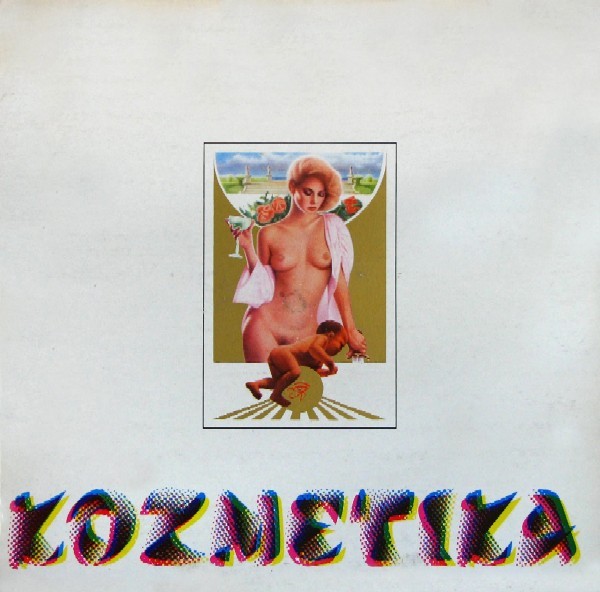The Yugoslavian new wave scene emerged in the late ‘70s and had a significant impact on its culture. The overall rock was socially accepted, well developed and covered in the media, including the freshly arrived new wave music.
This anti-establishment drive was even supported, though relatively, by the Communist authorities, which often organized concerts, festivals, parties, exhibitions, and other cultural events. Unlike Romania, the lyrics that were criticizing and satirizing the flaws of the Yugoslav socialism were considered by the Yugoslav authorities as a "useful and friendly critique" and were often allowed with certain cases of censorship.
One of the most known ambassadors of new wave and post rock was the Serbian band Kozmetika. Based in Belgrade, this band has a really interesting story. It had released only one album throughout its short career. Influenced by the David Bowie album Diamond Dogs, painter Vladimir Jovanović, director Marko Pešić, music editor of the Studio B television station Slobodan Konjović and Saša Nikolić (the owner of the first discothèque in Belgrade, formed the band Dijamantski Psi (Diamond Dogs). This was happening in 1974. Nevertheless, the band's career was interrupted at the very beginning by the imprisonment of the band members, due to marijuana possession. Having been released from prison two years later, the group continued working. They changed their name for a short time to Spajalice (The Staples). The band finally arrived to Kozmetika in 1978, being named after a combination of the words Kosmička Etika (Cosmic Ethics). The band consisted in Vladimir Jovanović on guitar and vocals, Marko Pešić on synthesizer, Slobodan Konjović on bass guitar and Miško Mihajlovski on rhythm machine.
Their eponymous album was recorded during a period of four years (from 1979 to 1982, in Jovanova St. 56, Jevremova St. 45, and MS studio) and was finally released in 1983 on the Yugoslav label ZKP RTVL, one of the very few record labels at that time. Skipping through tracks, one could find a perfectly crafted sound throughout the entire album, joggling with different musical styles and influences from the Western wave. The group's live appearance on April 6, 1977, at the Belgrade SKC is arguably taken as the beginning of new wave music in Serbia and this album serves as solid proof.
The album features 10 different tracks, working patiently on each one with numerous guest appearances. It opens with the cheery track ”Utisci”, with Nebojša Krstić (from the Serbian art pop group Idoli) on vocals. One of the tracks that I enjoy the most is the second one, ” Jedne Noći Na Terasi Na Moru”, inducing a night on a terrace, on the beach. Ona Hoće Sve Da Zna leads the listener through a sharpen new wave sound, enthusiastically played as a counter-part metaphor of the track ”She Lost Control” of Joy Division. Maybe. I don’t know.
The B-side comes with a few more rock oriented tracks, but the last one, called ”Gaja” stands out demandingly. Overall this is more than just an album, but it reflects a period of time from a nation, the Socialist Federal Republic of Yugoslavia, even after its dissolution in 1992. So, have a moment, some coffee or black tea, or maybe a few bananas, and ride this like there’s no tomorrow!
Tracklist:
1. Utisci2. Jedne Noći Na Terasi Na Moru
3. Kundalini
4. Ona Hoće Sve Da Zna
5. Belzebub
6. 12-erac
7. Zanatlija
8. Ne Da/Ne Nego I/Ili
9. Bluz Kontrolora Letenja
10. Gaja
